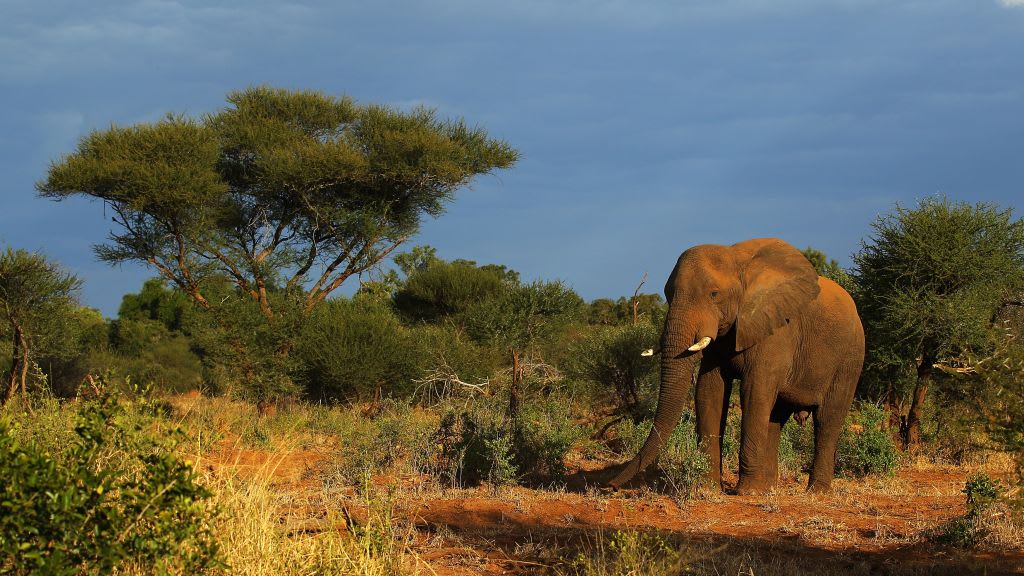The Irony of Conservation
Hunting and hunters are the real animal protectors.

Long before an American dentist shot the village icon, Cecil the Lion, the debate on African conservation has raged. The “war,” it seems, was only fiercened by the events that followed the fatal shot by Walter Palmer. Conservationists have been debating for many years now on whether or not hunting played a part in conservation. However, in recent years, studies and research has begun to show that hunting is part of conservation. Despite the recent evidence, most of the general population believe that banning trophy hunting altogether will solve the wildlife problem. While this solution may seem to be the best option, once one looks at the whole picture, it becomes evident that hunting plays an essential role in conservation. Banning hunting will not help the conservation effort due to the fact that, without hunting, there is no incentive for the African population to protect wildlife, and eco-tourism as an alternative to hunting will not be effective in remote or unstable areas.
The Oxford researcher, Andrew Loveridge, who studied Cecil, states that, "Hunting, as much as people might detest it, does have a role in conservation" (Anderson & Regan, par. 10). In many south African countries, hunting provides an incentive to protect wildlife. Without hunting, “…wildlife is often seen as a liability to be avoided or killed rather than an asset to be protected” (Anderson & Regan, par. 8). One of the best examples of the effects of a ban on hunting is Kenya. In 1977, Kenya banned hunting with a lion population of twenty thousand at the time. As of late 2015, the lion population had dropped to around two thousand. Overall, the big game population dropped 60%-70% in Kenya after the hunting ban. This proves that animal populations will not stabilize simply because hunting is banned. The ban on hunting in the noted countries did not directly cause animal populations to drop, but the ban on hunting effected other aspects, which in turn caused the drop in animal populations. The same results have not only been found in Kenya, but also in Tanzania and Zambia (Anderson & Regan, par. 6). The most astounding aspect about the population decline is that this is all occurring without any legal hunting. Therefore, the only results that occurred from banning hunting were less wildlife and the loss of millions of dollars in revenue. In 2012, a peer-reviewed science journal, PLOS One, conducted a study explaining how banning hunting could "reduce tolerance for the species among communities where local people benefit from trophy hunting, and may reduce funds available for anti-poaching"(qtd. in Anderson & Regan, par. 7). In areas where hunting has been banned, animal carcasses left by hunters are no longer an easy food source for lions and other scavengers. Therefore, the next easiest food source for predators is domesticated livestock. Anderson and Regan, citing the New Scientist, stated that, “on average, in Kenya each lion eats $270 worth of livestock annually. Such losses are catastrophic in a country where per capita income is $1,200. Herders would rather kill lions than conserve them” (qtd. in Anderson & Regan, par. 9).
For most conservationists and scientists that support a ban on hunting, the answer to the revenue deficit problem is eco-tourism. In theory, it sounds wonderful and glamorous, but in reality, it is not so. The problem arises in areas away from population centers and unstable countries. In the areas surrounding large tourist centers, eco-tourism could become a large industry. The areas with high wildlife densities and naturally beautiful landscapes will draw thrill seeking tourists desiring an exhilarating photo safari. However, many outlying areas or politically unstable countries will not be able to draw nearly enough tourism to offset the loss of revenue from the hunting industry. One very interesting fact that proves this is that, during the Zimbabwean land seizures, the hunting industry shrank by only 12%, while the tourism industry shrank by 75% (Lindsey, et al. 289). Most tourists are more likely to go on photo safaris near populated areas rather than going into the wilderness or to an unstable country. Many times, the places that are too remote or unstable for tourism are exactly the places hunters are interested in going. Also, even in the areas where eco-tourism does work, in the overall scope of things at a national level, “…there are not enough tourists to generate revenues for all of Africa’s protected areas…” (Lindsey, et al. 283). Although in some areas eco-tourism and photo safaris can effectively replace the lost revenue from hunting, it cannot effectively replace hunting on a national or regional level.
When it comes down to it, hunting is not hurting the wildlife populations. Dan Ashe, with the U.S. Fish and Wildlife Service, while speaking on the debate over the killing of Cecil, stated that, “Lions are not in trouble because of responsible sport hunting” (Anderson & Regan, par. 5). In fact, habitat destruction and human-animal conflicts are a much greater threat to the wildlife than hunting (Anderson & Regan, par. 5). In southern Africa, there is more land protected for hunting than there is for national parks. If hunting where banned, this land would almost entirely be lost. Not only does hunting provide an incentive to protect wildlife, but trophy hunting is one of the main ways local people reap benefits from living in regions with large wildlife. In a study conducted at the two of the largest safari shows in the world, it was found that “[e]ighty-six percent of clients would prefer to hunt in an area if they knew that a proportion of the proceeds went to impoverished local communities” (Lindsey, et al. 288). The end of trophy hunting would mean the loss of up to two hundred million dollars of revenue in southern Africa per year (Anderson & Regan, par 12).
The term “if it pays, it stays” (Anderson & Regan, par. 12) rings very true in southern Africa. Without hunting, many animals that are now protected and valued would lose all their value. Protected land would be lost, and many people would lose a way of life or source of income. The impacts of a ban on hunting would be detrimental to not only hunters, but to conservation and the economy. Hunting provides the income and incentive that is needed to keep and protect African wildlife. Although it does have flaws, when it is done legally and quotas are not exceeded, trophy hunting provides the income and incentive that is essential for conservation.
Works Cited
Anderson, Terry L., and Shawn Regan. "How Trophy Hunting Can Save Lions." Wall Street Journal. 07 Aug. 2015: A.9. SIRS Issues Researcher. Web. 7 Apr. 2016.
Lindsey, P.A., et al. “Potential of Trophy Hunting to Create Incentives for Wildlife Conservation in Africa Where Alternative Wildlife-Based Land Uses May Not be Viable.” Animal Conservation 9.3 (2006): 283-291. Print.





Comments
There are no comments for this story
Be the first to respond and start the conversation.